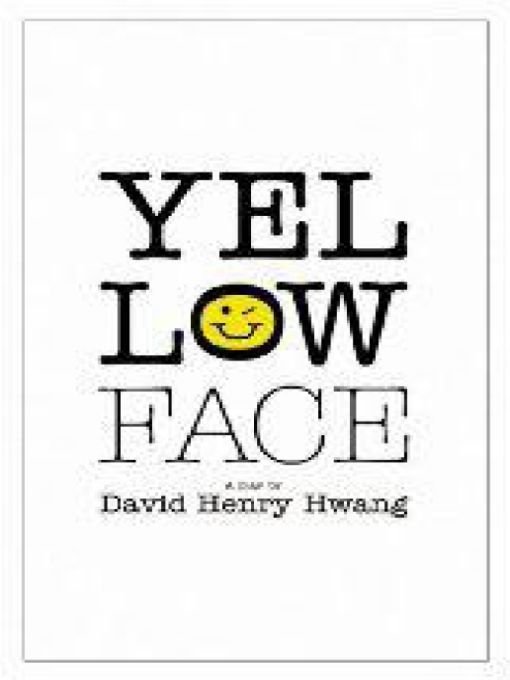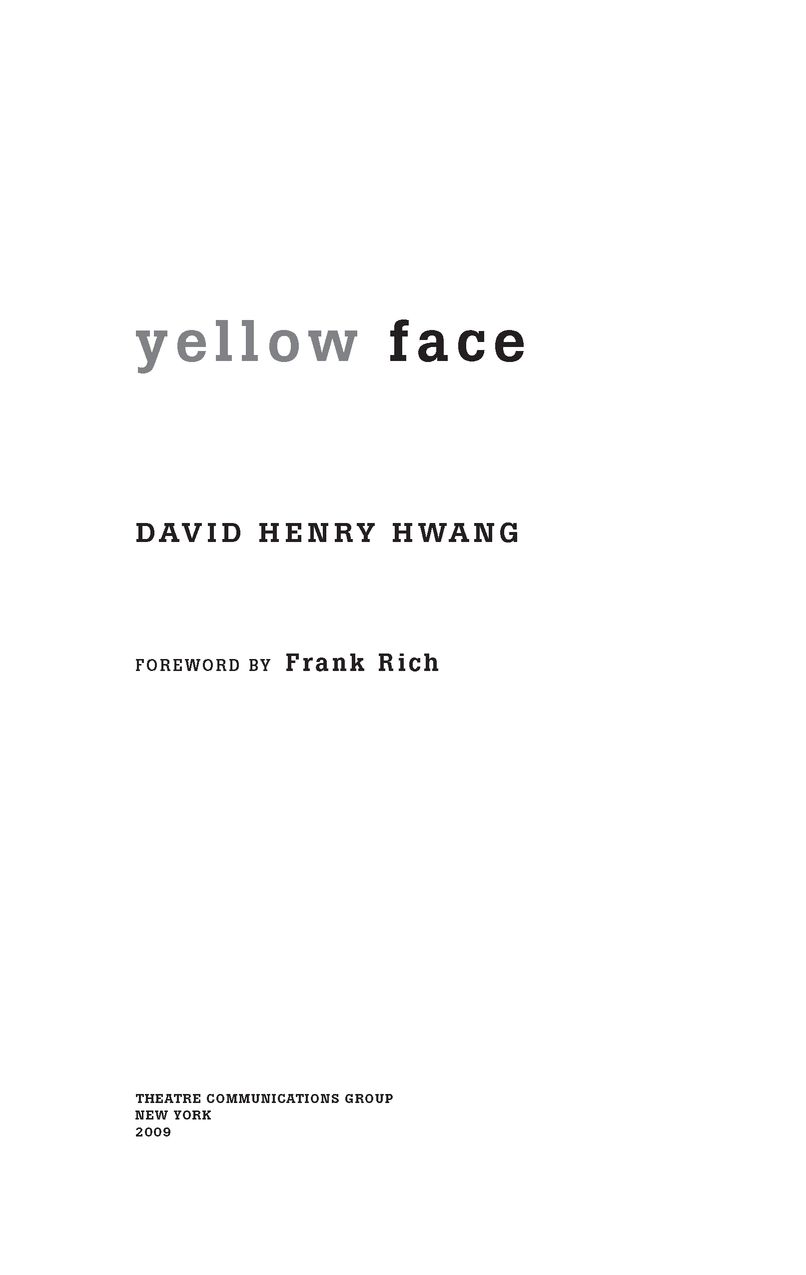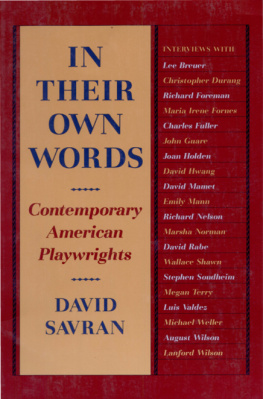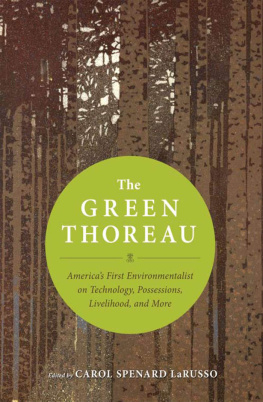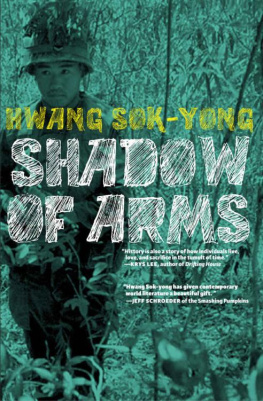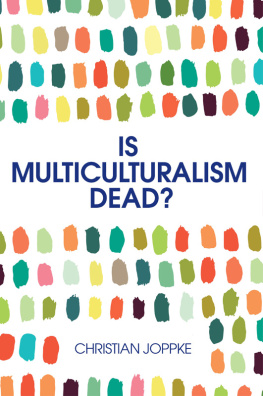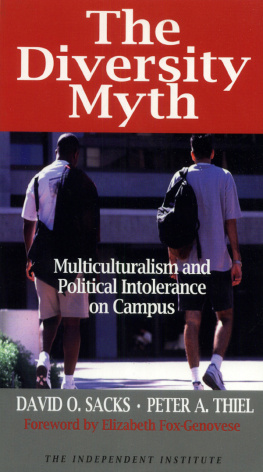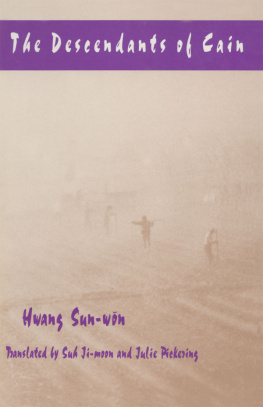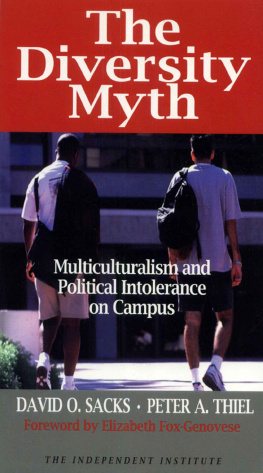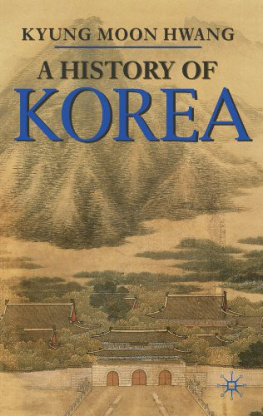Table of Contents
BOOKS BY DAVID HENRY HWANG AVAILABLE FROM TCG
Flower Drum Song
Golden Child
Trying to Find Chinatown
INCLUDES:
Bondage
The Dance and the Railroad
Family Devotions
FOB
The House of Sleeping Beauties
The Sound of a Voice
Trying to Find Chinatown
The Voyage
Yellow Face
Acknowledgments
Special thanks to Pannill Camp, my tireless researcher, as well as all my sources, who so generously contributed to this play, including those who do not appear in it: Jack Shafer, Jeff Yang, the New York Times investigative reporter who spoke to me on condition of anonymity, Alice Young, Frank H. Wu, Wayman Wong and Nicholas Hytner. The Dong musical selections are taken from Dong Folk Songs: People and Nature in Harmony; thanks to Joanna C. Lee, Ken Smith and Lee Wai Kit for permission. I also want to acknowledge and give special thanks to Margaret Cho for an excerpt from Im the One That I Want, copyright 2000 by Cho Taussig Productions, 2001 by Margaret Cho.
Foreword
By Frank Rich
As we look at David Henry Hwangs brilliant career from the avantage point of the new American era of Obama, its more clear than ever that he has always been ahead of the curve. Though inevitably labeled an Asian American writer, Hwang has actually been among the quintessential American playwrights, period, of his time. In his work, ethnic, racial and sexual identities are fluid, and the cultures that stir within the American melting pot alternately do battle and cross-pollinate. Near the end of Yellow Face, the plays protagonist, the playwright DHH, confesses an ambition to take words like Asian and American, like race and nation, and mess them up so bad no one has any idea what they even mean anymore. And so Hwang has done exactly thatand not just in this particular play. If theres a repeated refrain to the drama and farce that mark his work, its that the multicultural categories that have so long both defined and divided America inexorably coalesce into an uncategorizable but universal humanity. Americas new and unlikely president has called himself a mutt, and so are most of Hwangs American characters. Those mutts can speak for many of us in the audiencewhatever the particular multi-identities we represent within the infinite mix that is the U.S. of A.
Yellow Face is a particularly remarkable achievement, a Pirandellian comedy built out of a trio of sour real-life events from the last decade of the twentieth century: the uproar by Asian American theater artists over the casting of a white actor, Jonathan Pryce, in the starring role of a Vietnamese pimp in the big-budget Broadway musical Miss Saigon in 1990; the ignominious failure of Hwangs Face Value, a play about the Miss Saigon flap that closed during previews on Broadway in 1993; and a yellow peril hysteria of sorts that erupted in the political arena at the end of the 1990s. Thats when Wen Ho Lee, a nuclear scientist in Los Alamos, was accused of espionage and, concurrently, Asian American political contributors, including Hwangs own father, the Los Angeles banker Henry Y. Hwang, were dragged into the Washington witchhunts targeting Bill Clinton. Both Wen Ho Lee and Henry Hwang, as it happened, were the subject of overheated journalistic investigations in the New York Times, mordantly dramatized here, that ate up many columns of newsprint to no just end. Lee was incarcerated for nine months in solitary confinement while awaiting trial, only to plead guilty to a minor charge; the judge in the case apologized to him for the prosecutorial overkill, and later Lee would receive $1,645,000 to settle a lawsuit he brought against the federal government for invasion of privacy. Henry Hwang was never charged with anything by the Washington investigators looking for Clinton campaign-finance improprieties, but along the way they, like the Times, tarnished his nameand face.
Youd think these circumstances would propel David Henry Hwang to write an angry, bitter play. But Yellow Face is all the more powerful for grasping the absurdity of the real-life events and refracting them through this writers piquant comic vision. No character more epitomizes Hwangs buoyant tone than the poignant and at times uproarious characterization of HYHthe plays stand in for his real-life father. HYH, who arrived in America from Shanghai in the late 1940s, is head-over-heels in love with the country where he started with nothing and built a fortune. He channels Frank Sinatras My Way, wears Armani, delights in barking into a speakerphone and is enthralled with every last accoutrement of success. Hes so loyal toward his adopted country that, as his son puts it, hes the only person who ever went in for an IRS audit and came out with a bigger refund.
Only in America could a man like HYH seriously propose starting an organization called Chinese Republican Bankers for Clinton and dream that it would pay off with the ambassadorship to Great Britain. When, instead, he gets unjustly hauled before a congressional committee (for a potpourri of accusations including money-laundering, violation of campaign finance laws, aiding a foreign power, possibly even complicity in espionage), he still has trouble shedding his fundamental American faith. He sees himself as a hero on national television: Lights, cameras, senatorsand me, giving it to those guys. Youyou discriminate against Asians! This sort of thingmust never happen in America. He wonders out loud: What does Ollie North have that I dont? Perhaps the congressional investigation will even be a stepping stone to the governorship of California.
When HYH is ultimately disabused of his innocencerealizing that the system doesnt always play fair and that real life in America does not necessarily imitate the Jimmy Stewart movies he loved as a child in Chinait is a grievous and moving turn of events. Yet its not Hwangs final word. As a counterpoint to the painful chronicle of HYHs disillusionment, the playwright comes up with one of his most ingenious fictional characters: Marcus G. Dahlman, aka Marcus Gee, a young actor whose Off-Off-Off Broadway appearance as a Japanese American soldier in a play at the Marin Community Center leads DHH to cast him as an Asian American in his ill-fated play Face Value.
Marcus looks white and is white. But, as DHH says at one point, nowadays, its so hard to tell. The freak Marin community theater casting mixup, Equity rules and the niceties of political correctness allow Marcus to keep passing for part-Asianindeed to become something of a paragon of Asian American successto the absurd extreme that he can star as the King of Siam in a touring production of The King and I. (Let us not forget that the Broadway originator of that classic Asian role, Yul Brynner, was, like Hwangs fictional Marcus, of Russian ancestry. We should also note that another Rodgers & Hammerstein Asian-themed musicalFlower Drum Songcast a white actor in a principal Chinese American role in its original Broadway production of 1958, a lapse corrected in the 2002 Broadway revival for which Hwang wrote the revised book.)
Might Marcuss perverse self-invention be a vindication of HYHs American Dream after all? Look at me, Marcus tells DHH, I imagined myself as something completely different from what I was, and painstakingly constructed that new identity through sheer will and determination, just like the self-made tycoon HYH.

